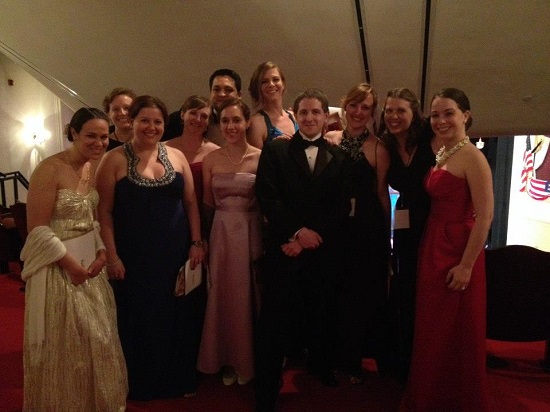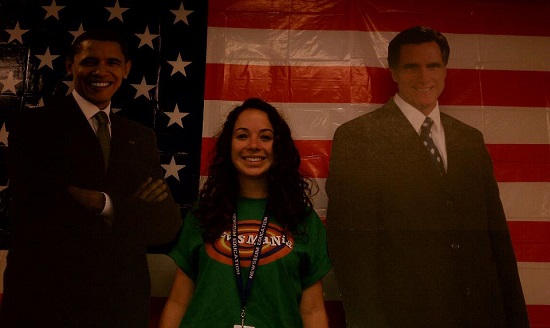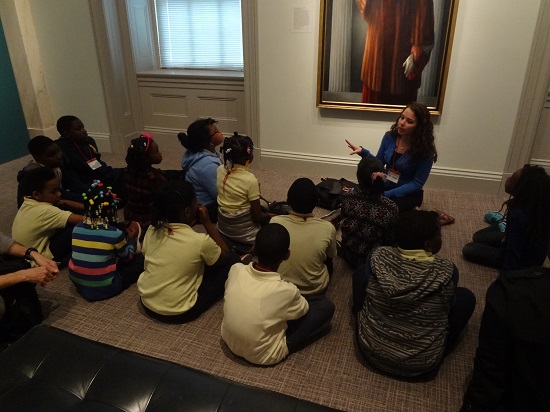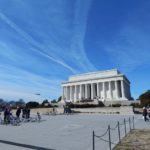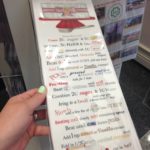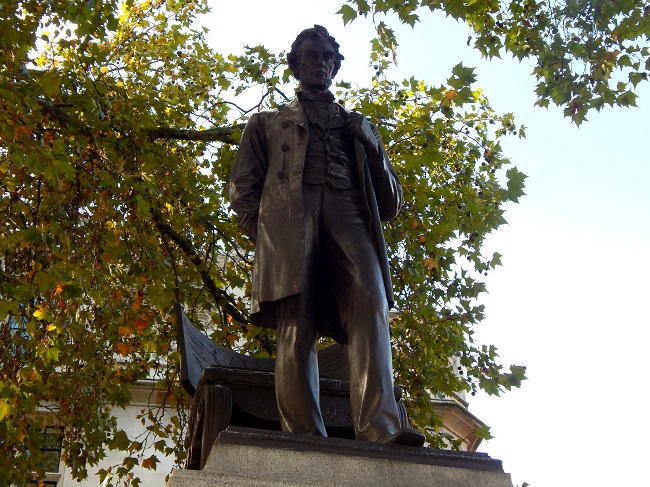 After writing about visiting the Science Museum to prepare for a job interview, I was asked to participate in Webucator’s Most Marketable Skill project to help recent graduates as they search for jobs. I was excited about the topic, but wasn’t sure what I would write – there are just so many useful skills to have. Then last week I was leaving Westminster Abbey and on my way to catch the bus I ran into an old friend and he gave me some inspiration. It was Abraham Lincoln.
After writing about visiting the Science Museum to prepare for a job interview, I was asked to participate in Webucator’s Most Marketable Skill project to help recent graduates as they search for jobs. I was excited about the topic, but wasn’t sure what I would write – there are just so many useful skills to have. Then last week I was leaving Westminster Abbey and on my way to catch the bus I ran into an old friend and he gave me some inspiration. It was Abraham Lincoln.
This statue is called Abraham Lincoln,The Man and is by Augustus Saint-Gaudens. The original is in Chicago, and this is one of a few copies. It was brought to London in 1920. It’s gorgeous and larger than life. I’m not sure why it is in London. But, here’s a fun fact. After Lincoln’s death Queen Victoria wrote to Mary Todd to commiserate with her, since she, the Queen, had recently lost her own husband. So there’s a little Lincoln and London connection.
But back to the point, yes, Abraham Lincoln is my old friend. You might not know it, but I used to work at Ford’s Theatre, the place where President Lincoln was assassinated. While working there I fell in love with Abraham Lincoln and Ford’s is what I consider the start of my professional career in the museum field.
What does Abe have to teach us about marketable skills? A lot actually, but specifically I think he can teach us about career flexibility. When I say flexibility, I’m not saying that you should say yes to everything even if it is a bad job and even if it makes you a doormat. Flexibility means having a goal, and ambition, but being ok with taking a winding path to get there. Lincoln grew up on a farm and had little formal education, but he was smart and wanted more than what he started with. He had all kinds of jobs so that he could learn more and do more in the world. He worked on a boat, was a surveyor, ran a store, was a militia soldier, was a lawyer, and a Congressman. And then of course, President. Not just any president, but one who saved the Union, helped bring an end to slavery, and is beloved today.
And there’s a lot to be learned from that. When I graduated from college in 2008 with a BA in English Literature. I thought I would get a job, work there for awhile, and over time gain responsibility and grow in the company. I saw everything in a straight upward trajectory. Going to school follows that model, where one thing comes after the next in nice sequential order. But in the real world, things aren’t always that neat. .
After graduation I landed a full time job fundraising at a DC think-tank and I volunteered at the Smithsonian. I ended up hated the job and loving the volunteering. In 2010 I left that job and went to graduate school in New York City. During graduate school I had 5 internships, in fundraising, education, and visitor services. Two of those turned into paid part-time jobs (one of which was at Ford’s). I graduated with my Master in Museums Studies in 2012, moved back to DC and was working at Ford’s in Visitor Services. I enjoyed the job. I was working with visitors and talking about history, but I really wanted to be teaching. So, I got another part-time summer job working at a pop-up science exhibit. The building had no AC or plumbing. To go to the bathroom we had to shut down the exhibit and go to Potbelly’s around the corner. The conditions were awful but demonstrating science experiments to kids was really fun and closer to what I wanted to do. That job ended in August and I was still at Ford’s, but then landed a part-time teaching job at the Newseum. Yay! I was finally in museum education. After about a year of working two jobs, I finally got a full-time job at Live it Learn It. Best job ever. Then, eleven months later I was moving to London. Luckily, I got to stay on with Live It Learn It writing curriculum from abroad. And on Monday I’m about to start a new job. Whew. That’s a lot of jobs. I’m exhausted just writing that.
As you can see flexibility, is important. It is a valuable marketable skill because it gives you some breathing room. Flexibility allowed me to change my career path and change how I approached my new one. If you only allow yourself to be one thing, and you have to get there a certain way, you’ll be disappointed. I was disappointed after graduate school that I had to work two part-time jobs. I had spent all this time and money to gain qualifications and I thought I should have a full-time job in a museum’s education department. It was frustrating. However, working two jobs ended up being a blessing. If I had held out for a full-time job I wouldn’t have been making money or gaining skills. After all, I was working in my chosen field, I had two networks of great colleagues, and I was gaining experience. Those jobs helped make my resume stronger and more diverse, and therefore more marketable.
Flexibility isn’t just about taking positions that might be a little unusual, it also applies to how you approach your work. Flexibility opens you up new projects. In my first job out of college I worked at a big think-tank, and I was a very little fish in the office. I spent a lot of time doing data entry and mailing letters. At one point my team was moving offices and I had the unenviable task of packing up everything. Packing is boring, but by doing a good job, I was able to show that I was organized, that I could take initiative, that I could mobilize my colleagues, and that I could approach a large task with grace and good humor. That crappy project showed my boss I could be counted on and after that, I got more fun projects – I got to do more writing and editing of solicitation letters, I was able to staff high-level donor events, and I became in charge of creating large reports about endowment chair activities. All of that might sound super boring, but it was really exciting to me at the time.
Finally, flexibility helps you expand your network. By saying yes to various opportunities and new projects you will never know who you will meet and what you can learn. The people I’ve met have become friends and mentors. They have connected me to friends in London, helped me get my foot in the door for interviews, edited my cover letters, they have given me ideas for curriculum, they have given me ideas of things to cook for the blog, and they have helped me open my mind to a career path that doesn’t have to be straightforward. I don’t have the career I thought I would, but I do have one I love.
But let’s get back to Lincoln a bit. I think Lincoln is successful, remembered, and loved in part because of his diverse experiences. It made him a man of the people. Having done so much, he could talk to anyone. He loved to tell jokes and stories. By getting out there, working all over, meeting people, and connecting with them, he was able to find some great success. He was able to unite a cabinet composed of his political rivals. He held the Union together (sometimes by questionable means) and he was able to bring an end to slavery. And when he died his funeral train from Washington, DC to Springfield, IL was visited by scores of people. You can’t deny he was effective, admired, and achieved his political goals.This an oversimplification, but it does apply. (If you want to talk more Lincoln details, message me and I’m happy to chat). For me Lincoln is a great model and source of inspiration for thinking about how flexibility can help get me where I want to go.
I’ll finish by sharing my favorite quote.
Whatever you are, be a good one.
– Abraham Lincoln
So for those of you out there looking for jobs, whether a new graduate or not, be flexible about your path, what you do, and how you get there. Whatever you are, whether it is the thing you want to be, or just a stepping stone, be flexible, work hard, and good things will come.
Not my usual Tourist Tuesday, I know. Next week I’ll be back with more sight seeing pictures.


